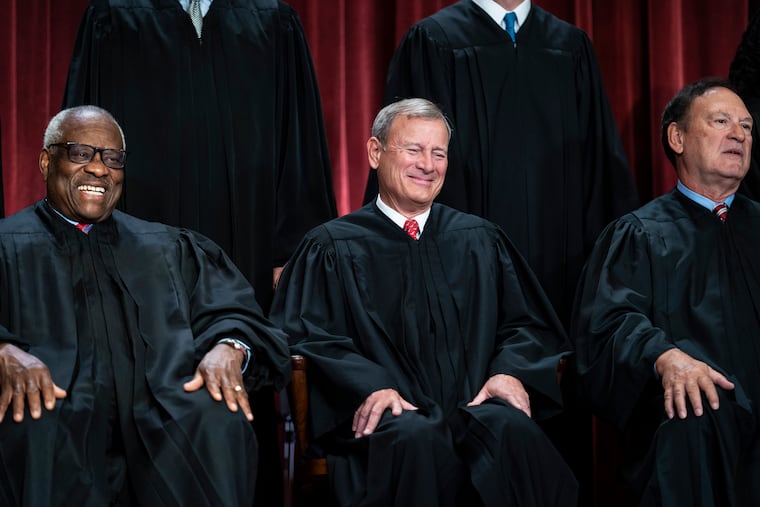Letters to the Editor | Nov. 30, 2023
Inquirer readers on American economic growth and the Supreme Court's ethics code.

No place for extremism
I couldn’t agree more with your recent editorial about voters’ clear rejection of extreme candidates in local school board elections. This drama has been a massive waste of time and resources; resources that should be directed toward ensuring every child receives a quality education. There is, fortunately, one simple solution that would go a long way toward curbing extremism in our politics, particularly at the local level: allowing independent voters to vote in primary elections.
More than a million Pennsylvania voters are currently unable to vote in primary elections, even when, as is often the case in school board and local judicial races, the candidates are cross-listed. Allowing these voters to participate in primaries would make it more difficult for extreme candidates to get on the November ballot, and ensure that we have qualified candidates from both sides of the aisle administering our public schools.
David Thornburgh, Philadelphia, thornburghd@gmail.com
A lesson from Argentina
While Kyle Sammin claims that the economy is not as good as President Joe Biden says it is, the amount of consumer spending we are seeing would suggest otherwise. Perhaps people feel more secure spending their money in an environment where unemployment is very low, jobs are secure, and workers have some leverage. Sammin also states that people’s savings are being depleted by higher prices, forgetting the fact that anyone who has savings should be earning interest at rates that outpace inflation.
It is true that some people are facing financial hardship, but the overall economic picture is currently positive. The lesson from Argentina is what can happen when voters fall prey to a populist demagogue because while economic conditions are fleeting, the loss of rights and the weakening of democratic institutions are not.
Bill Fanshel, Bryn Mawr, wfanshel@hotmail.com
Goes without saying
I agree with your editorial regarding the U.S. Supreme Court and its code of ethics, but it strikes me that if the justices even need a code of ethics, they shouldn’t be there in the first place. If they don’t have an inherent sense of justice, how can they go about protecting citizens from injustice? The Supreme Court members still refer to themselves as “justices,” but in my opinion, they hardly deserve that title. They’re currently no more than legal technicians evaluating cases based on previous decisions and concurring or dissenting accordingly. We don’t need justices to do that; we can develop algorithms to do that. A justice’s job should be to refer to the law as a tool to protect people from injustice, not just acknowledge a law even if it results in injustice. Any person who thinks law equals justice needs to be reminded that slavery was legal in this country until it was abolished in 1865. What’s most troubling about all of this is that people are always searching and begging for justice — if the system doesn’t provide it, the people will search outside the system. That route is always messy, and we certainly don’t need things to be any messier than they already are.
Karl Weiss, Pennsburg
Join the conversation: Send letters to letters@inquirer.com. Limit length to 150 words and include home address and day and evening phone number. Letters run in the Inquirer six days a week on the editorial pages and online.